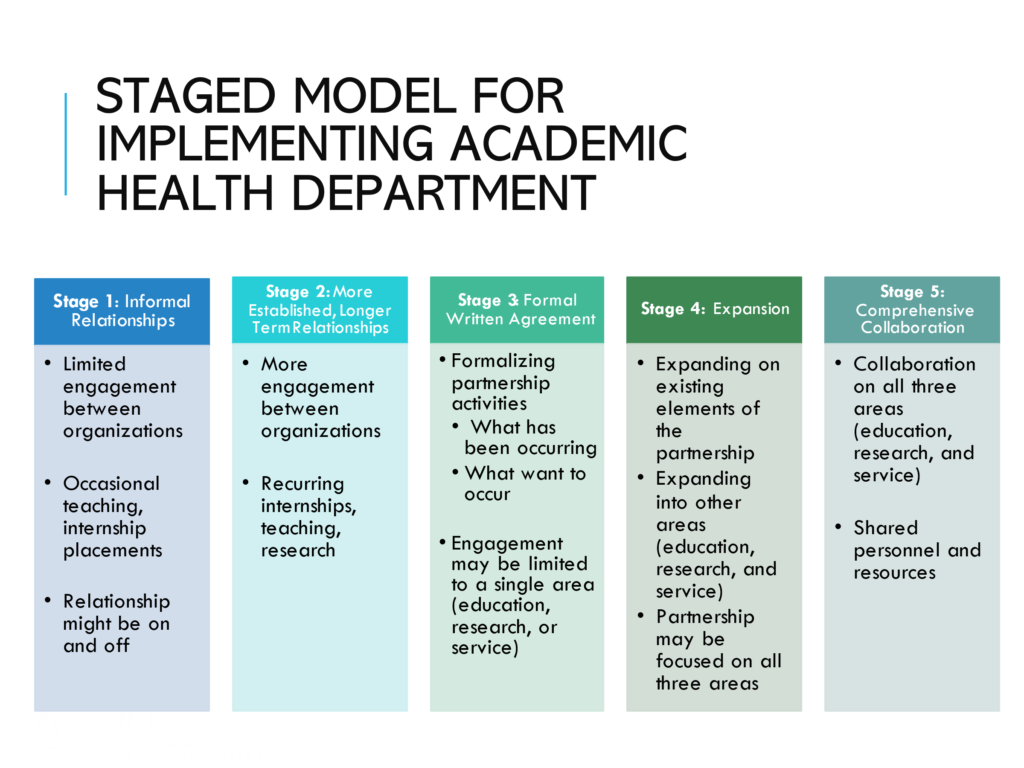
It is a mission of public health practice across the nation to prioritize evidence-based interventions and program evaluations as part of the work we do, yet the capacity to do this consistently in rural areas is limited. Our two-county rural health district in north-central North Carolina addresses this with a unique long-standing partnership across colleges and universities and the local health department (LHD). The Rural Academic Health Department (AHD) Model at Granville Vance Public Health provides a real-world laboratory, real-community relationships, and real-time testing for researchers’ interests in generating rural public health practice-based evidence. It also connects local public health practitioners to real-time expertise in grant writing and management, evaluation, epidemiology, and health equity research. This is the magic; it’s simultaneously beneficial to the community, the LHD, and the researchers.
Elevating the practice of public health in a rural area and telling our story about the work we accomplish in and with the community remains paramount. Having an academic connection embedded in GVPH has a ripple effect of influence and problem-solving that rural LHDs rarely have access to just down the hall. We’ve been able to accomplish this, while adding capacity to our stretched workforce and infusing sustainable funding for population health into our community, through formal agreements with UNC and Duke University. Whether we are continuing the trajectory of chronic disease prevention and health promotion work, starting a new intervention, evaluating a current service model, or fighting a pandemic, the Rural AHD Model has been both an incredibly beneficial journey and a positive synergy. There is more to accomplish yet!

References
[1] UNC Gillings School of Global Public Health. (2021). Student volunteer creates data dashboard for COVID-19. Retrieved January 24, 2022, from https://sph.unc.edu/sph-news/student-volunteers-to-create-data-dashboard-for-covid-19/
The impact of this model is evident through the numerous publications, presentations, news and media features among other projects that have formed through partnership with affiliated universities. This work is the highlight of the Academic Health Department Model, and can be viewed in the Impact Page to the left which features an innovative Curriculum Vitae for the department and an interactive way to see the product of this model.




As a Rural Academic Health Department, Granville Vance Public Health is committed to providing robust internship experiences for current undergraduate and graduate students, as well as recent graduates, who are interested in public health, health promotion, disease prevention, local government, and rural health. A particular academic background is not required; just an enthusiasm for our work and a readiness to contribute and learn along the way.
Please check with the NC Alliance of Public Health Agencies for any posted paid opportunities for public health internships.
